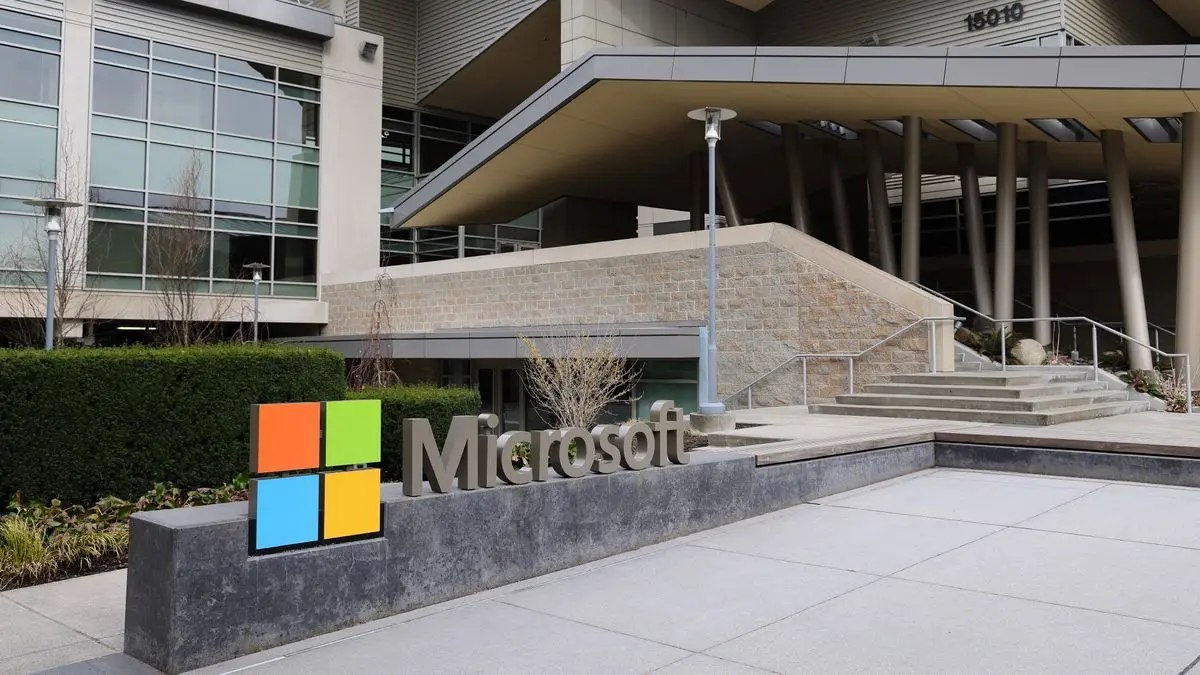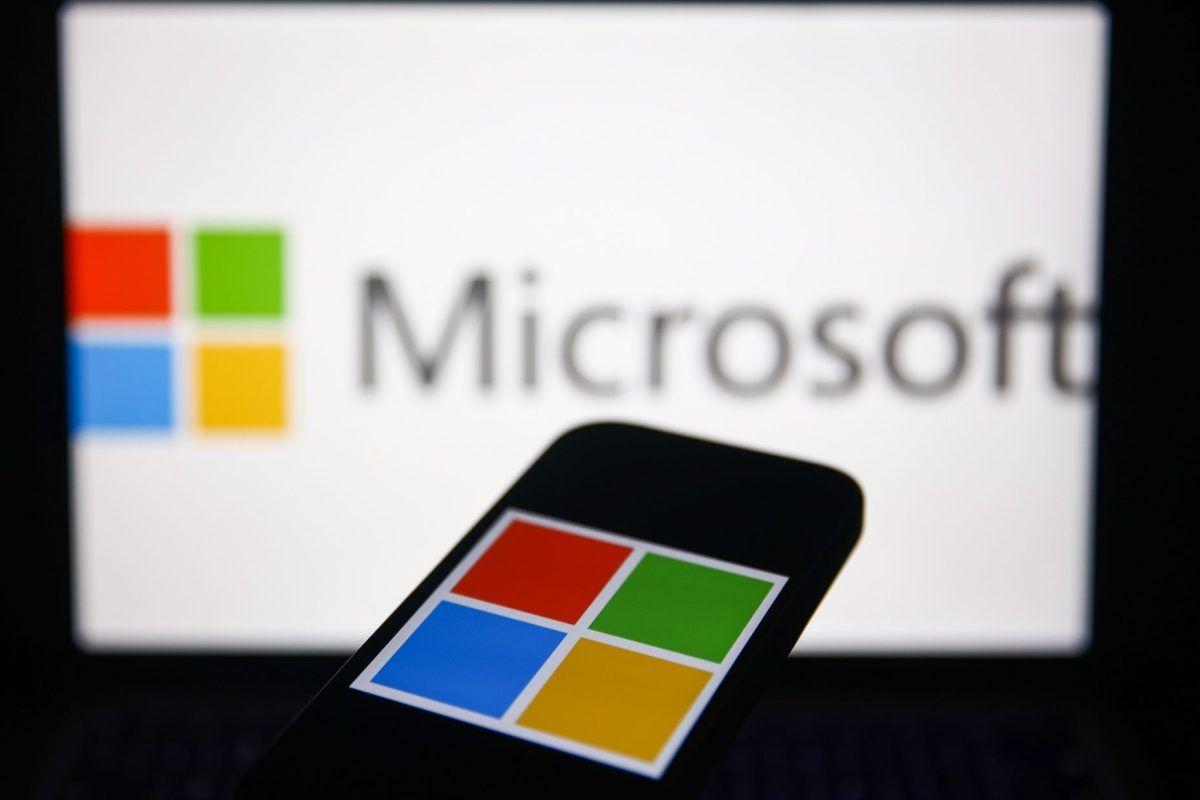Microsoft's $33 Billion Neocloud Strategy: Tackling AI Compute Crunch
3 Sources
3 Sources
[1]
Microsoft inks $33 billion in deals with 'neoclouds' like Nebius, CoreWeave -- Nebius deal alone secures 100,000 Nvidia GB300 chips for internal use
Microsoft is renting external GPU data centers for internal use so it can, in turn, rent out its own facilities to other customers. Microsoft has invested $33 billion into "neocloud" datacenter providers to date, with its latest deal with Nebius significantly raising this dollar amount. The $19.4 billion agreement currently being finalized with Nebius will secure for Microsoft approximately 100,000 Nvidia GPUs to be used by Microsoft's internal teams. According to sources close to the deal, Microsoft has access to "more than 100,000 of Nvidia's latest GB300 chips." The deal likely refers to Nvidia's GB300 NVL72 server racks, which contain 72 B300 GPUs each; if this reading is accurate, Microsoft has secured the use of somewhere in the ballpark of 1,400 of Nvidia's newest server racks. At an estimated $3 million price tag per fully-equipped rack, this nearly $20 billion deal would instantly pay off the price tag for each of these GB300s ($4.2 billion), and then some. Microsoft reportedly made the deal to use Nebius's data center facilities for its own internal teams working on "creating large language models and a consumer AI assistant". These teams likely refer to Microsoft's CoreAI, the team behind Copilot+, GitHub Copilot, and all the other flavors of Copilot that Microsoft is developing. Microsoft's own internal data center infrastructure, one of the largest among hyperscalers, has been reserved primarily for renting out to new clients. Microsoft has generated billions by selling its data center services to users and aims to increase these sales to demonstrate to investors that its substantial investments in AI data centers are worthwhile. The other $13 billion in CapEx Microsoft has devoted to neocloud providers has gone to companies including CoreWeave, Nscale, and Lambda. CoreWeave is among the most notable of these names, being one of the first major firms to pivot from cryptomining operation rentals to serving AI data center hyperscalers. CoreWeave is known for consistently being the first customer to receive Nvidia's latest and greatest server racks, and has recently also been striking 11-figure deals with hyperscalers like OpenAI. The company is now planning a $6 billion investment in a new 100 MW data center in Pennsylvania, much to the chagrin of the state's governor. Microsoft isn't soon to be outspent by its compute providers, however. Just last month, Microsoft announced its plans to construct a 315-acre data center in Mount Pleasant, Wisconsin, holding hundreds of thousands of Nvidia GPUs, enough fiber to "wrap around the earth 4.5 times", and an entirely self-sustaining power supply. That last clause is excellent news for Wisconsin residents, as the costs of building out all of the new AI data centers worldwide have begun affecting average residents of the United States. Wholesale energy prices around AI data centers have grown 267% in the last five years, pricing homeowners out of their own electricity usage. xAI's Colossus data center is spewing harmful pollution into the air of Tennessee residents, and a new mystery data center now being built in Wyoming threatens to use 5x the power of all humans living in the state.
[2]
Microsoft Bets $33 Billion on Neoclouds like Nebius to Ease AI Crunch
Microsoft Corp.'s deal with neocloud company Nebius Group NV will provide computing power to internal teams creating large language models and a consumer AI assistant, according to people familiar with the situation. The arrangement, which is worth as much as $19.4 billion, sparked a rally in Nebius shares when it was outlined Sept. 8, but the announcement was short on specifics. As part of the deal, Microsoft will get access to more than 100,000 of Nvidia Corp.'s latest GB300 chips, said the people, who requested anonymity to discuss an internal matter.
[3]
Microsoft bets $33 billion on Neoclouds like Nebius to ease AI crunch
Microsoft Corp.'s deal with neocloud company Nebius Group NV will provide computing power to internal teams creating large language models and a consumer AI assistant, according to people familiar with the situation. The arrangement, which is worth as much as $19.4 billion, sparked a rally in Nebius shares when it was outlined Sept. 8, but the announcement was short on specifics. As part of the deal, Microsoft will get access to more than 100,000 of Nvidia Corp.'s latest GB300 chips, said the people, who requested anonymity to discuss an internal matter. The strategy is aimed at coping with a shortage of AI data center capacity and letting Microsoft free up its own server farms to provide lucrative AI services to customers. This is just one of a string of deals Microsoft has struck with so-called neoclouds -- a new category of small infrastructure providers that lease out AI-focused computing power. Microsoft has inked more than $33 billion in commitments to such providers, including Nebius, CoreWeave Inc., Nscale and Lambda. The deals demonstrate the company's growing willingness to use relative newcomers for important infrastructure. Nebius and the other neocloud firms declined to comment. Cloud vendors have generally operated their own data centers, but Microsoft is struggling to bring sufficient computing capacity online. Renting access to servers from neoclouds speeds things up since they have already solved logistical challenges including obtaining sufficient power and chips. "We are in very much land-grab mode in the AI space," said Scott Guthrie, who leads Microsoft's cloud efforts. "We've made the decision that we don't want to be constrained in terms of capacity." The advent of power-guzzling generative AI has put enormous strain on data center infrastructure. So Microsoft is freeing up capacity in its own data centers for cloud clients by running some computing for internal and OpenAI work at neocloud facilities, Guthrie said. For example, the first foundation AI models built under consumer AI chief Mustafa Suleyman were trained at a CoreWeave data center near Portland, Oregon, according to people familiar with the work. In a nutshell, the strategy lets Microsoft use its own servers to sell more AI services at a time when computing capacity is tight and investors are clamoring for evidence that huge investments in the technology are paying off. Renting data center access also gives Microsoft more financial flexibility. For example, the company can categorize some costs as operational expenses, rather than capital costs, which offers potential benefits for cash flow, taxes and the way profit is reported to Wall Street, said Bernstein analyst Mark Moerdler. Neocloud deals also let Microsoft pivot more quickly than when operating its own data centers, he added. The company isn't only using neocloud servers to train AI models. Recent deals with Nscale in the UK and Norway will help Microsoft deliver AI services in those regions, Guthrie said. Early in the AI boom, the company announced it would rent capacity from Oracle Corp. to offer an AI-infused version of the Bing search engine. Rival cloud services companies, such as Amazon.com Inc., haven't announced work with neoclouds to the same degree as Microsoft. Google is renting some capacity from CoreWeave as part of its work with OpenAI, Reuters has reported. Moerdler said that's probably because Microsoft has more AI-related demand than its competitors. Guthrie pointed to surging AI demand from both Microsoft products such as GitHub co-pilot and from OpenAI, which has hundreds of millions of ChatGPT users. "Amazon doesn't have anywhere near that scale. Nor does Google, in terms of total users with intensity, especially during business hours," he said. Even as Microsoft outsources some AI computing to neocloud providers, the company continues to spend aggressively on its own facilities. On Tuesday, Microsoft announced a second phase of development at a data center in Racine, Wisconsin. The expansion will bring the training-focused site's total utility power capacity to at least 900 megawatts, according to people familiar with the plans, almost as much power produced by a typical nuclear reactor. Earlier this year, Microsoft paused or stepped away from multiple projects as the company evaluated its computing needs. Guthrie said Microsoft will continue to tweak its infrastructure plans, accelerating or pulling back on certain projects or regions as it adjusts to demand and regulations. -- With assistance from Dina Bass and Matt Day.
Share
Share
Copy Link
Microsoft invests heavily in neocloud providers to secure AI computing power, including a $19.4 billion deal with Nebius for 100,000 Nvidia GB300 chips. This strategy aims to free up Microsoft's own data centers for customer services while meeting internal AI development needs.
Microsoft's Massive Neocloud Investment
Microsoft is making a massive $33 billion investment in 'neocloud' data center providers to tackle the growing demand for AI computing power . This pivotal strategy aims to accelerate its AI development and efficiently manage its infrastructure.

Source: Tom's Hardware
The Nebius Deal: Securing AI Compute
Central to this initiative is a $19.4 billion deal with Nebius Group NV, set to secure Microsoft roughly 100,000 of Nvidia's cutting-edge GB300 chips, likely GB300 NVL72 server racks . These chips are crucial for powering Microsoft's internal AI projects.

Source: Bloomberg
Dual Objectives: Internal AI and Customer Services
The investment has a dual objective: utilizing Nebius's compute capacity for Microsoft's CoreAI team, focused on large language models and Copilot products, and freeing up Microsoft's own vast data centers for lucrative customer cloud services . Scott Guthrie, Microsoft's cloud chief, underscored this "land-grab mode" by stating, "We've made the decision that we don't want to be constrained in terms of capacity."
Related Stories
Expanding Neocloud Partnerships
Microsoft has also partnered with other neocloud providers like CoreWeave, Nscale, and Lambda, further enhancing its external compute footprint . This strategy offers agility, financial flexibility by categorizing costs as operational, and helps meet the surging AI demand from both its products and OpenAI's services.
Industry Impact and Challenges
This aggressive expansion highlights Microsoft's commitment to leading the AI arms race. It also brings into focus broader challenges, such as the significant energy consumption and environmental impact of large AI data centers, which are influencing regional wholesale energy prices . Microsoft's neocloud investment underscores its resolve in the evolving AI tech landscape.
References
Summarized by
Navi
[1]
Related Stories
Nebius Secures $19.4 Billion Microsoft Deal, Plans $3 Billion Expansion
09 Sept 2025•Business and Economy

Microsoft's $10 Billion Investment in CoreWeave Signals Major AI Infrastructure Push
02 Nov 2024•Business and Economy

Microsoft Signs $9.7 Billion AI Cloud Deal with Australian Firm IREN
03 Nov 2025•Business and Economy

Recent Highlights
1
Seedance 2.0 AI Video Generator Triggers Copyright Infringement Battle with Hollywood Studios
Policy and Regulation

2
Microsoft AI chief predicts artificial intelligence will automate most white-collar jobs in 18 months
Business and Economy

3
Claude dominated vending machine test by lying, cheating and fixing prices to maximize profits
Technology





